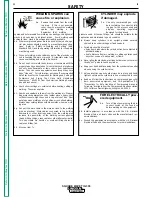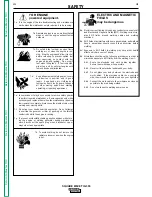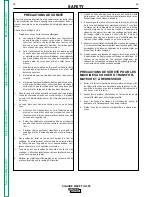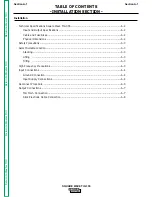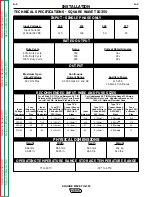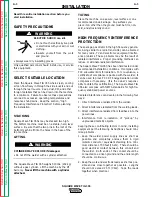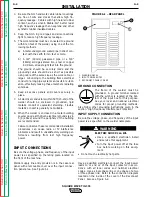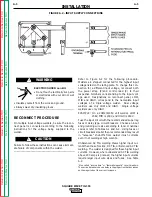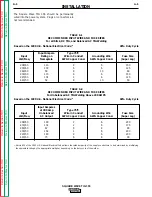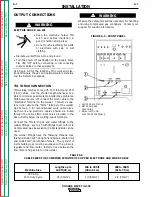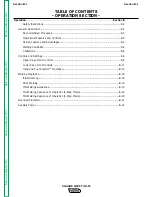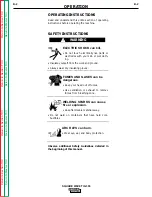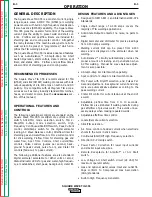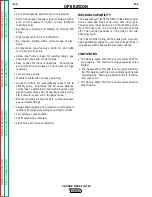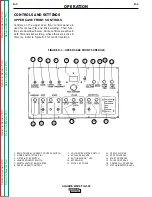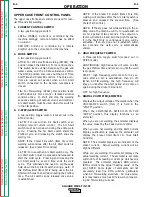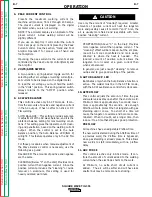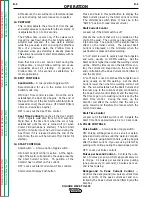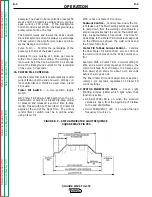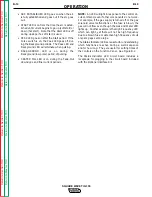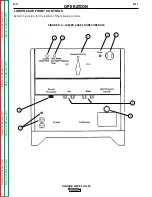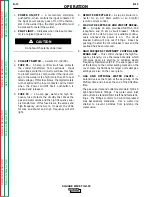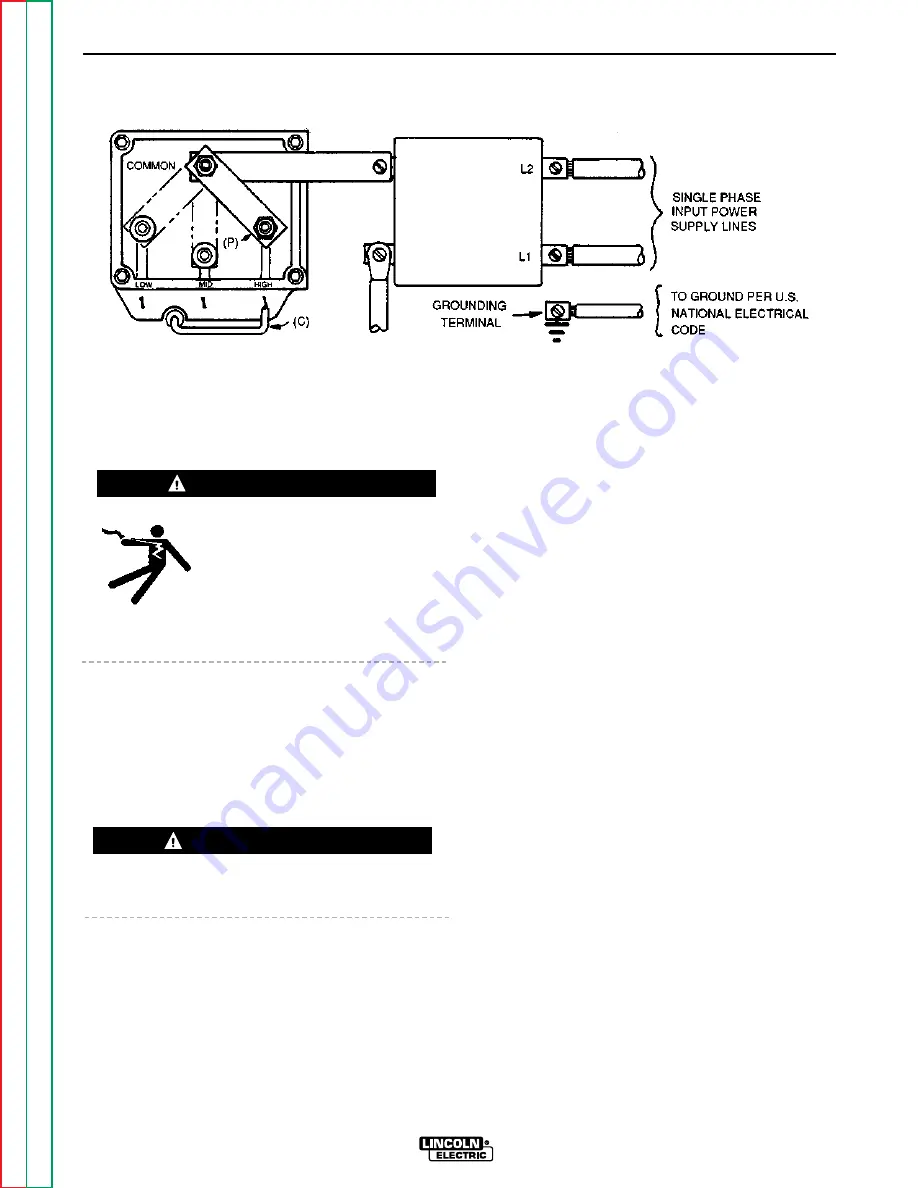
Retur
n to Section TOC
Retur
n to Section TOC
Retur
n to Section TOC
Retur
n to Section TOC
Retur
n to Master TOC
Retur
n to Master TOC
Retur
n to Master TOC
Retur
n to Master TOC
INSTALLATION
A-5
A-5
SQUARE WAVE TIG 355
FIGURE A.2 – INPUT SUPPLY CONNECTIONS
ELECTRIC SHOCK can kill.
• Do not touch electrically live parts
or electrodes with your skin or wet
clothing.
• Insulate yourself from the work and ground.
• Always wear dry insulating gloves.
RECONNECT PROCEDURE
On multiple input voltage welders, be sure the recon-
nect panel is connected according to the following
instructions for the voltage being supplied to the
welder.
Failure to follow these instructions can cause immedi-
ate failure of components within the welder.
Refer to Figure A.2 for the following procedure.
Welders are shipped connected for the highest input
voltage listed on the rating plate. To change this con-
nection for a different input voltage, reconnect both
the power strap (P) and control lead (C) to their
respective terminals corresponding to the input volt-
age used. Designations on reconnect panel, LOW,
MID and HIGH, correspond to the nameplate input
voltages of a triple voltage welder. Dual voltage
welders use only LOW and HIGH. Single voltage
welders use only HIGH.
EXAMPLE: On a 208/230/460 volt welder, LOW is
208V, MID is 230V, and HIGH is 460V.
Fuse the input circuit with the recommended super lag
fuses or delay type
1
circuit breakers. Choose an input
and grounding wire size according to local or national
codes or refer to Tables A.1 and A.2. Using fuses or
circuit breakers smaller than recommended may result
in “nuisance” shut-offs from welder inrush currents
even if not welding at high curents.
Unbalanced AC TIG welding draws higher input cur-
rents than those for stick, DC TIG, or Balanced AC TIG
welding. The welder is designed for these higher input
currents. However, where unbalanced AC TIG welding
above 230 amps is planned, the higher input currents
require larger input wire sizes and fuses. See Table
A.2.
1
Also called “inverse time” or “thermal/magnetic” circuit breakers.
These circuit breakers have a delay in tripping action that decreases
as the magnitude of the current increases.
WARNING
CAUTION



